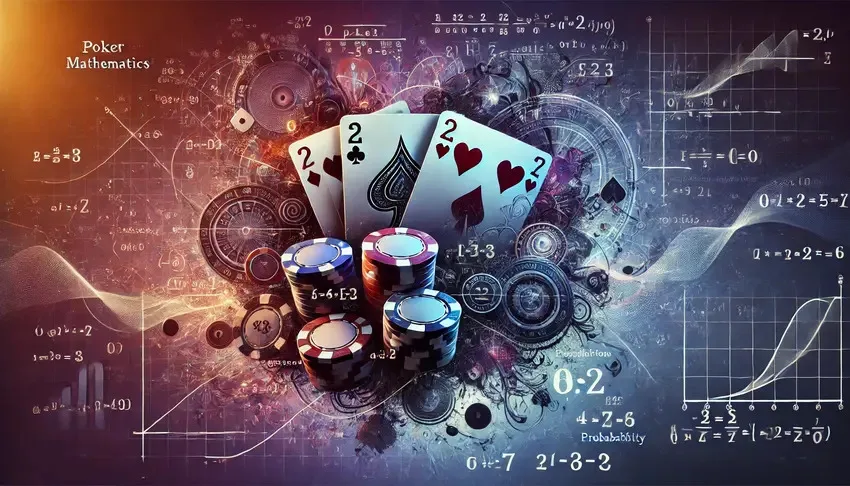
Poker Mathematics: Probabilities and Chances of Winning
Poker is a game of skill, strategy, and psychology, but at its core lies the foundation of mathematics. Understanding the probabilities and chances of winning is crucial for any serious poker player. This knowledge not only enhances your decision-making abilities but also gives you an edge over opponents who rely solely on intuition. In this article, we’ll delve into the essential mathematical concepts in poker, including how to calculate probabilities, the importance of pot odds, implied odds, and mathematical strategies for different stages of the game.
Basic Concepts in Poker
Before diving into the mathematics of poker, it’s important to understand some fundamental concepts. Poker is a card game that involves betting based on the value of your hand. The strength of your hand, combined with the actions of your opponents, determines your chances of winning a particular round. Key concepts include the ranking of hands, the concept of equity (your share of the pot’s expected value), and the role of variance in the game.
How to Calculate Probabilities in Poker
Calculating probabilities in poker involves determining the likelihood of certain events occurring during the game. For example, the probability of being dealt a pair in Texas Hold’em is about 5.88%, while the chance of hitting a flush after the flop is approximately 19.6%. To calculate these probabilities, you must understand combinatorics—the branch of mathematics that deals with combinations and permutations. By mastering these calculations, you can make more informed decisions at the table, increasing your chances of winning. For a detailed example of these calculations, you can explore resources like the 21 Point casino login, which offers comprehensive tools for poker players.
Pot Odds and Their Use
Pot odds are a critical concept in poker mathematics. They refer to the ratio of the current size of the pot to the cost of a contemplated call. By comparing pot odds with the odds of completing your hand (e.g., hitting a straight or a flush), you can determine whether a call is profitable in the long run. For instance, if the pot offers you 4:1 odds, but the odds of completing your hand are 3:1, it’s mathematically correct to call. Understanding and applying pot odds effectively can significantly improve your decision-making process in poker.

Implied Odds and Hidden Odds
While pot odds help you assess the immediate value of a call, implied odds take into account the potential future earnings if you complete your hand. For example, if you believe your opponent will bet heavily on future streets, your implied odds may justify a call even when pot odds alone do not. Hidden odds, on the other hand, consider the possibility of concealing the strength of your hand, allowing you to extract more value from unsuspecting opponents. Mastering both implied and hidden odds enables you to make more nuanced decisions, especially in complex situations.
Mathematical Strategies for Different Stages of the Game
The importance of mathematical strategies varies depending on the stage of the game. In the early stages, focus on hand selection and positional play, using probability to guide your decisions. As the game progresses, particularly in the middle stages, pot odds and implied odds become increasingly important. During the late stages, when the blinds are high, mathematical strategies must be combined with psychological tactics, such as bluffing and reading opponents, to maximize your chances of winning.
Common Calculation Errors and How to Avoid Them
Even experienced players can fall prey to common calculation errors. These errors often stem from miscalculating pot odds, overestimating implied odds, or failing to consider the impact of variance. To avoid these pitfalls, always double-check your calculations and remain disciplined in your decision-making. Remember, poker is a game of long-term strategy; short-term losses are inevitable, but by adhering to mathematical principles, you can ensure consistent profitability over time.
Understanding the mathematics behind poker is essential for any player looking to improve their game. By mastering probabilities, pot odds, implied odds, and applying these concepts to your overall strategy, you can gain a significant advantage at the table. Remember, while luck plays a role in the short term, it’s your knowledge and application of poker mathematics that will lead to long-term success.

